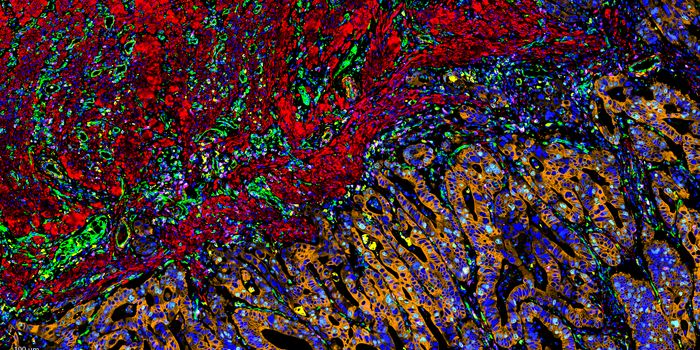Understanding the 'Security Guards' of Our Tissues - γδ T Cells
T cells are on the front lines of the immune system, and many reside in the blood and lymph nodes, surveying for and responding to foreign agents and invaders. But special T cells known as gamma delta T cells (γδ T cells) set up shop in epithelial tissues such as the lining of the gut, or the skin. There, they ensure that disease and damage isn't occurring unchecked. Researchers have now learned more about how these immune 'security guards' can differentiate between healthy and diseased tissues. The findings have been reported in Nature Immunology.
In this study, the scientists used a mouse model to analyze how γδ T cells in the skin were interacting with cells that form the mouse skin's structure. While regular T cells were able to recognize bacterial or viral proteins, γδ T cells are on the lookout for a molecule that healthy cells carry, called Skint1. The skin γδ T cells interact with their surroundings continuously, when no clear invader is present.
When the researchers interfered with the binding ability of Skint1, the γδ T cells weren't able to function normally anymore. The critical immune barrier function of the skin was disrupted. This study has highlighted the work T cells do even when there isn't an active infection or other problem, to maintain and protect tissues, challenging the idea that the immune system is mainly at work while identifying and responding to a threat, noted the researchers
If the mouse skin with non-binding Skint1 was exposed to stress in the form of UV radiation or chemicals that cause irritation, the γδ T cells could not help the skin recover from the damage that was caused by these environmental stressors.
This study has indicated that immune cells and healthy tissues have to interact in order to mount an effective response against damage or infection, said the scientists. The γδ T cells have to set a baseline in normal tissue so they can detect problems.
"Like security guards, they stay familiar with their surroundings so that they can most effectively identify when things go wrong," said lead study author Duncan McKenzie, PhD, a postdoctoral fellow at the Francis Crick Institute.
"Although we've specifically looked at interactions in mouse skin, we know that there are molecules similar to Skint1 in different tissues, including the human gut lining, where many γδ T cells are found. Our findings may therefore help to explain how γδ T cells maintain and protect many different parts of the human body."
Additional research will help reveal more about how γδ T cells sense the transition a healthy cell makes to a cancerous one. Various research groups are also studying γδ T cells to develop cancer immunotherapies.
Sources: The Francis Crick Institute, Nature Immunology









